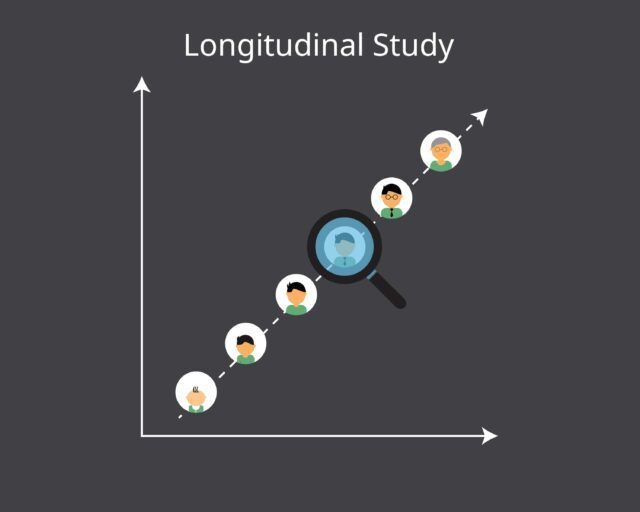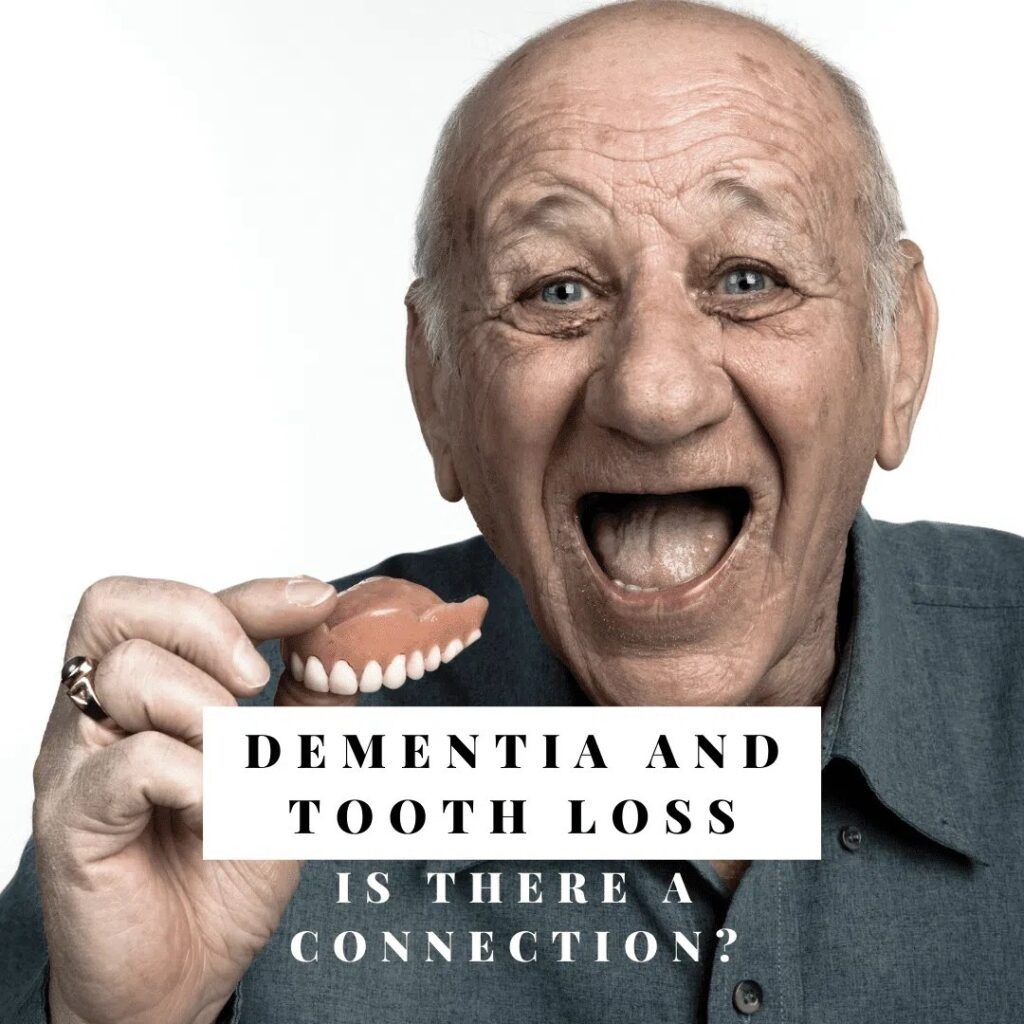For many people, tooth loss can lead to a host of problems including misaligned teeth, changes in the bite, speech impediments, and problems with biting and chewing that can eventually lead to malnutrition. Recent research published in the Journal of Post-Acute and Long-term Care Medicine by researchers at New York University Rory Meyers College of Nursing has identified yet another problem associated with tooth loss; dementia. In this blog post, we will discuss the connection between tooth loss and dementia as well as the benefits of tooth replacement through dental implants. Dental implants are tooth replacements that can be used to replace missing teeth and decrease your risk for dementia.

Tooth Loss
Tooth loss is a common problem for older adults, especially those who have struggled with their oral health all their life. The CDC notes that as many as 1 in 6 adults over the age of 65 are missing all their teeth. Teeth can fall out for a variety of reasons, but the most common reason for tooth loss is periodontitis. Periodontitis is an advanced form of gum disease that is characterized by the deterioration of the gum tissue, periodontal ligaments, cementum, and alveolar bone.
Dementia

Dementia is another problem commonly seen in older adults and is a term for a group of symptoms linked to brain deterioration. Over five million persons over the age of 65 are said to be suffering from dementia, according to the CDC. Dementia involves problems with thinking, memory, and decision-making. Dementias include a variety of disorders, but Alzheimer’s disease is the most prevalent and well-known form of dementia. There is no known cause of dementia at this time, but risk factors include: age, genes, race/ethnicity, previous or current head injuries, smoking, and health issues such as high blood pressure and high cholesterol
Is there a relationship?
Recently, a study was performed to determine if there could be a relationship between these two common problems that affect older adults. Researchers examined longitudinal research on tooth loss and cognitive impairment to see if there is a link. 37,074 individuals aged 50 years or older were included in 14 separate studies, along with 4,689 instances of adults who had cognitive impairment. The following are the primary findings:

- Adults with more tooth loss had a 1.48 times higher risk of developing cognitive impairment
- Adults with more tooth loss had a 1.28 times higher risk of being diagnosed with dementia, despite controlling for other factors
- Adults with missing teeth were more likely to be affected by cognitive decline if they did not have dentures (23.8% of individuals without dentures were more likely to have cognitive impairment, compared to only 16.9% of individuals with dentures.
- A larger amount of missing teeth was associated with a higher risk for cognitive decline (each additional missing tooth increased the risk of cognitive impairment by 1.4% and the risk of being diagnosed with dementia by 1.1%)
These findings clearly show a link between tooth loss and cognitive decline. In fact, one of the researchers notes:
“…the relationship between the number of missing teeth and risk of diminished cognitive function substantially strengthens the evidence linking tooth loss to cognitive impairment, and provides some evidence that tooth loss may predict cognitive decline”
-Xiang Qi, a doctoral candidate at NYU Meyers
In addition to providing evidence suggesting a link between tooth loss and cognitive decline, researchers also postulate reasons behind this link. While the exact cause is not yet known, researchers believe that there are three possible causes:
- Malnutrition caused by an inability to chew
- A connection between severe gum disease and cognitive decline
- Life-long socioeconomic challenges that are risk factors for both tooth loss and cognitive decline
How Dental Implants Can Help
Now that we’ve defined the problems of tooth loss and dementia, and reviewed the findings of a new study that asserts a relationship between these two problems, let’s take a look at how dental implants can help prevent cognitive decline. As mentioned above, adults with missing teeth were less likely to be affected by cognitive decline if they have dentures. This implies that the prompt replacement of missing teeth can decrease the risk of cognitive decline.
While the research study focused on those with missing teeth and those with dentures, it is important to note that dentures are no longer the only choice for replacing missing teeth. Although dentures do restore the appearance of your smile, as well as some chewing ability, they also have some major downfalls.

For starters, dentures sit on top of the gums and alveolar bone, and are held in place by suction. Since they sit on top of the bone, they are not able to stimulate the bone like natural tooth roots. This eventually causes the alveolar bone to deteriorate, which results in poor-fitting dentures that irritate the gums, fall out, and slip while eating. Unfortunately, many people eventually find themselves on the “denture diet”, which are a collection of soft foods that lack a variety of nutrients. As a result, malnutrition can occur, which is a risk factor for cognitive decline. This suggests that dentures may simply delay cognitive impairment instead of preventing it altogether.
Dental implants are a modern approach to replacing missing teeth. As more people learn about dental implants, more and more people are choosing implants over dentures. This is because dental implants can offer more benefits for patients than dentures. Dental implants function as artificial tooth roots and can support a crown, bridge, or denture, depending on the number of missing teeth in need of replacement.
Unlike traditional dentures which sit on the top of the gums and jawbone, dental implants are placed into the jawbone where they will fuse with the surrounding bone. They are then connected to a dental prosthetic to restore the natural appearance and function of missing teeth. There are two main differences between dental implants and dentures:
- Dental implants can restore normal chewing function and strength, whereas dentures can only partially restore chewing function and lack the same strength.
- Dental implants stimulate the jawbone, which maintains bone mass and prevents bone deterioration. This also means that dental implants will continue to “fit” and will not slide or rub the gums like traditional dentures.
Since dental implants can replace missing teeth like dentures, they can help prevent cognitive decline caused by tooth loss. Unlike dentures, however, dental implants will preserve natural chewing abilities permanently, which decreases the risk of malnutrition, as well as cognitive decline.
To Sum It Up:
Recent research has suggested a link between tooth loss and dementia. This link is believed to be possibly caused by malnutrition due to a lack of chewing ability. As such, tooth replacement with dental implants may be able to prevent or decrease the risk of cognitive decline in people who have lost one or more teeth.

